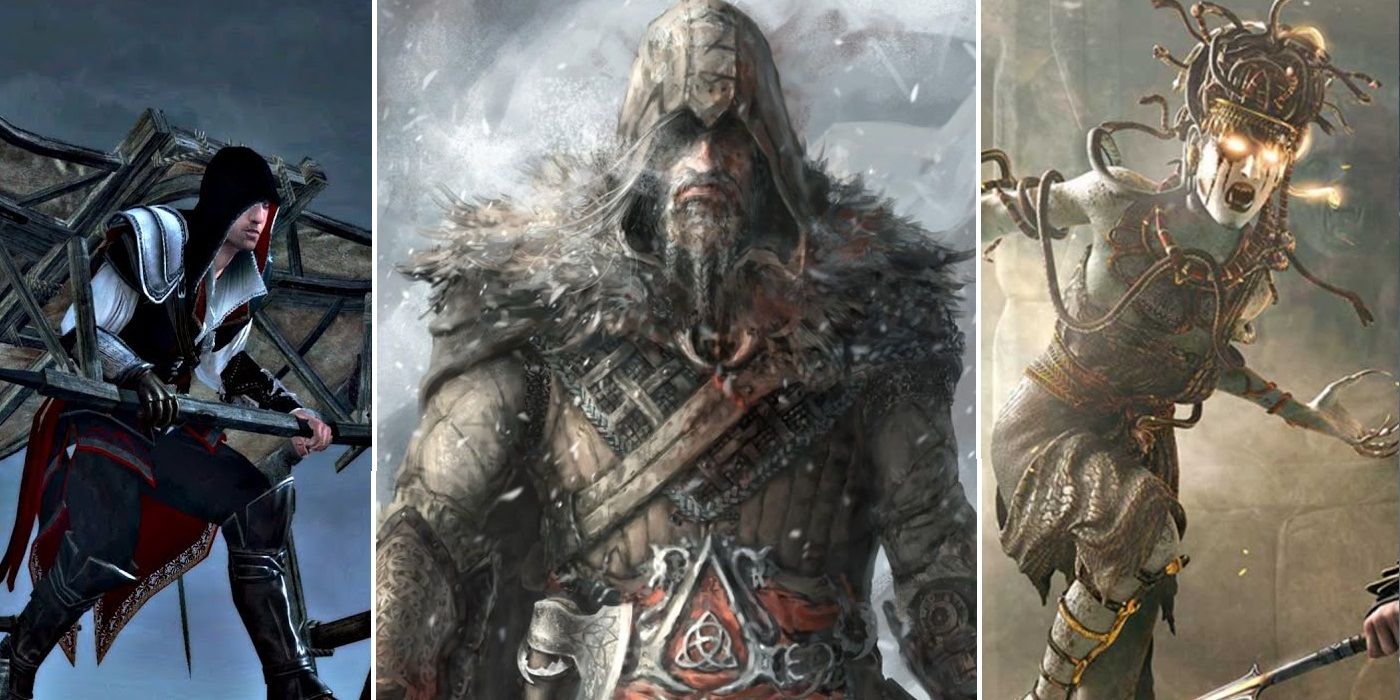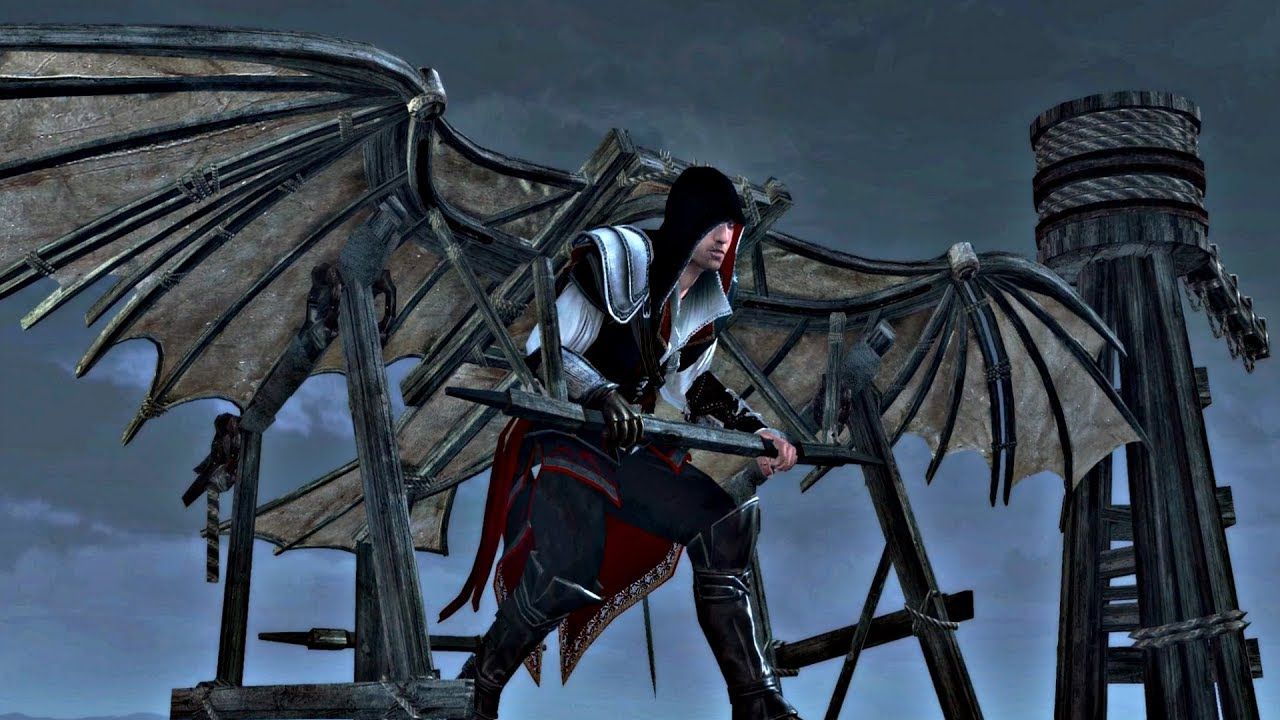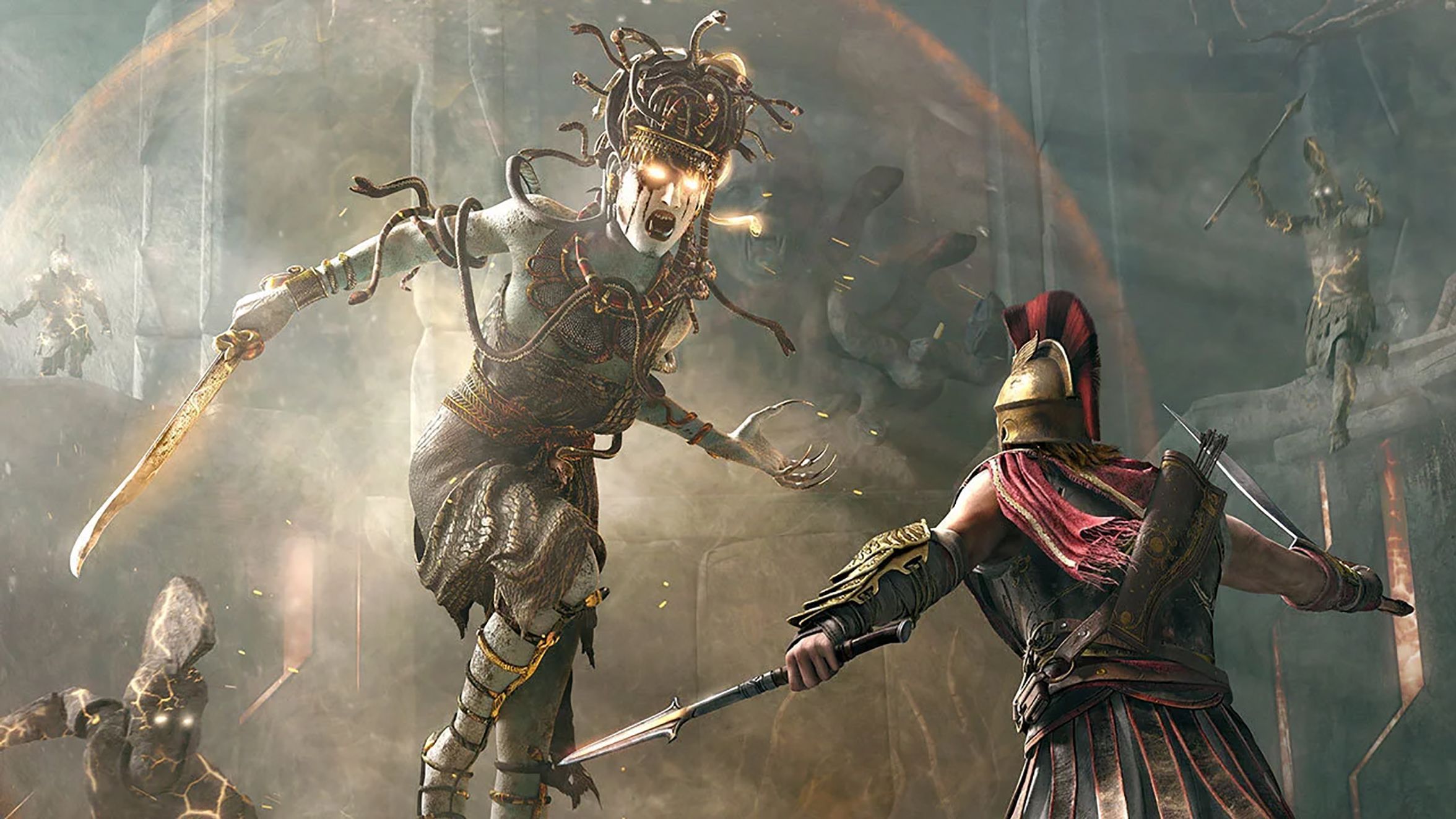The Assassin's Creed franchise has done a wonderful job of uniquely telling alternate historical stories through the platform of video games. When the franchise burst onto the scene in 2007 with the original title, the game took place in the Holy Lands during the Third Crusade. Now Assassin's Creed Ragnorak looks to turn the page toward Norse history, which lends itself to countless opportunities for interesting storytelling.
With some of the rumors that have swirled around, fans have been able to pinpoint where Ragnarok may take place. However, thus far details are scarce when it comes to the story within the game, other than the fact that it will be related to Viking times. Assasin's Creed has traditionally been a game soaked in historical fact, albeit with some Templar and time-travel fun sprinkled in. It is not yet known if Ragnarok will continue on with the mostly historical accuracy of the series or if it will shift towards the newly found mythological elements of the franchise found in Assassin's Creed Origins and Odyssey.
Assassin's Creed Origins introduced more mythical elements from Egyptian lore, which was followed up with an even more in-depth dive with Assassin's Creed Odyssey. While these new gameplay elements created a fresh twist to the franchise, it was certainly a massive shift, as fighting a Cyclops, a Minotaur, and Medusa is a big difference from an assassin stealthfully taking down human enemies. This begs the question whether or not Assassin's Creed Ragnarok will continue down the new path of mythical elements, with all of the Norse mythology or stick to its more historical roots.
Historical Storytelling in Assassin's Creed
The Assasin's Creed series has really always been an alternate history franchise when it comes to storytelling. The original Assasin's Creed sees Altair in the Holy Land during the Third Crusades. In Assasin's Creed 2, which many argue is the best of Assasin's Creed games in the series, players control Ezio during the Renaissance in Italy. Ezio is able to work test out Leonardo Da Vinci's flying machine and use it to soar across the skies of Venice. Not only is this an awesome gameplay device, which is something that Ragnarok can learn and bring back, but it is also something that Da Vinci really created in 1485. It's real-life historical elements like this that Ragnarok can pull from the rich Norse history and be able to use, even for gameplay purposes.
Assasin's Creed 3 sees Connor fighting during the American Revolution, whereas Assassin's Creed 4: Black Flag takes place during the golden age of piracy in the Caribbean as players control Edward Kenway. Each took realistic events like the Battle of Concord and gave it an all new twist, something that a mostly historical viewpoint can do.
While Da Vinci is one of the most well-known figures in any history textbook, Assassin's Creed IV: Black Flag used real-world pirates that many may not have known. Many remember Blackbeard, whose real name was Edward Teach, and is a major part of the game. But even small side characters like Stede Bonnet, a land-owner who became "The Gentleman Pirate," was a real-world pirate as well.
As such, Ragnarok can learn from Black Flag and use real-life figures to tell stories that many players may not recognize. Black Flag has always been the "black sheep" of the series but in a good way, and Ragnarok is lining up in some ways to be the next black sheep, as Ragnarok and Black Flag may have a lot in common.
Norse History and Mythology
As Ubisoft insisted that mythological creatures are a great fit for Assassin's Creed Odyssey, the same may end up being the case for Assassin's Creed Ragnarok. Norse mythological creatures are aplenty, including Fenrir, a monstrous wolf; Draugr, an undead like creature; and even the Kraken.
Ragnarok could benefit from boss-like battles with these amazing monsters. If Ubisoft really wanted to shake things up, it could even decide to have non-realistic enemies throughout the world for the game's assassin to beat at any given moment, and not just during set-piece events and boss battles. How heavily it leans into mythological events remains to be seen, but perhaps it could pivot toward one more than the other or strike a delicate balances like Odyssey. With the next Assassin's Creed rumored to be revealed soon, gamers may be finding out details soon.
Ragnarok is likely taking place early in the Viking era, which would be around 800 AD. The game's setting would thus be about 300 years before the first Assassin's Creed game. In some ways, this makes it difficult to be as historically accurate as possible. However, Assassin's Creed Origins took place even further back during the time of Cleopatra in 49 BC.
The interesting thing about Ragnarok possibly having mythological elements is that Norse history and mythology are very much tied together. During 800 AD, the people would have very much believed in spirits and gods and goddesses, even of dwarves were not roaming about and Odin, the Norse god. There are many Norse mythology references that can be made in passing, even if the game doesn't have those creatures roaming about.
Many fans would like the modern-day setting to end entirely for Assassin's Creed, and it's definitely fair to claim that the time travel and the Templars kick historical accuracy out the window. That being said, fighting giant one-eyed beasts in Odyssey seems slightly different than quietly assassinating a high-ranking official in Assassin's Creed 2. Time till tell if Ragnarok goes the realistic route of the early Assassin's Creed Games, or if Kraken will be roaming the seas as a mythical boss and somehow players need to take it down. Either way, Norse lore is ripe for picking for the Assassin's Creed dev team, and it will surely create a game with wonderful experiences for gamers to enjoy.
Assassin's Creed Ragnarok is rumored to be in development.



